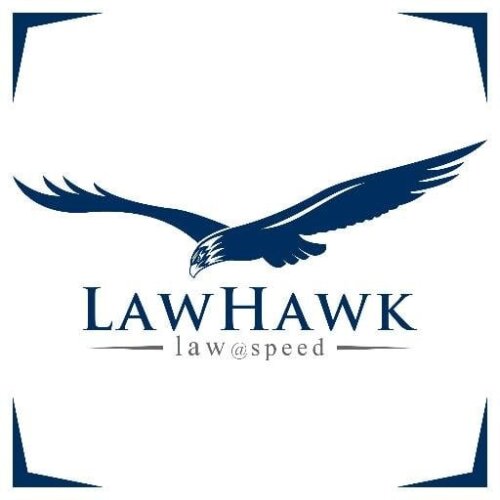Best Information Technology Lawyers in New Zealand
Share your needs with us, get contacted by law firms.
Free. Takes 2 min.
Or refine your search by selecting a city:
List of the best lawyers in New Zealand
About Information Technology Law in New Zealand
Information Technology (IT) in New Zealand is a rapidly growing industry that encompasses a wide range of technologies and services. As technology continues to evolve, the legal aspects surrounding IT are becoming increasingly complex. IT law in New Zealand covers various areas such as data protection, privacy, intellectual property rights, cybersecurity, and e-commerce.
Why You May Need a Lawyer
There are several situations where you may need a lawyer specializing in Information Technology in New Zealand. These include drafting or reviewing IT contracts, resolving disputes related to IT services or products, ensuring compliance with data protection laws, protecting your intellectual property rights, and navigating the legal implications of cybersecurity incidents.
Local Laws Overview
In New Zealand, the key laws that are particularly relevant to Information Technology include the Privacy Act 2020, the Harmful Digital Communications Act 2015, the Copyright Act 1994, the Patents Act 2013, and the Telecommunications (Interception Capability and Security) Act 2013. It's essential to understand how these laws apply to your IT-related activities to avoid legal pitfalls.
Frequently Asked Questions
1. What are the data protection requirements for businesses in New Zealand?
Businesses in New Zealand must comply with the Privacy Act 2020, which sets out rules for the collection, storage, and use of personal information. Failure to adhere to these requirements can result in significant fines.
2. How can I protect my intellectual property rights in New Zealand?
You can protect your intellectual property rights in New Zealand through patents, trademarks, copyrights, and trade secrets. Consulting a lawyer specializing in intellectual property law is recommended to ensure your rights are adequately protected.
3. What should I do if my IT services provider breaches our contract?
If your IT services provider breaches your contract, you may need to seek legal advice to enforce the terms of the agreement, negotiate a resolution, or pursue legal action for damages.
4. What are the legal requirements for e-commerce businesses in New Zealand?
E-commerce businesses in New Zealand must comply with consumer protection laws, electronic transactions regulations, and advertising standards. Understanding these legal requirements is crucial for operating a successful online business.
5. How can I ensure compliance with cybersecurity laws in New Zealand?
To ensure compliance with cybersecurity laws in New Zealand, you should implement robust security measures, conduct regular risk assessments, train your staff on cybersecurity best practices, and stay informed about the latest threats and vulnerabilities.
6. Can I transfer personal data outside of New Zealand?
Yes, you can transfer personal data outside of New Zealand, but you must ensure that the data is adequately protected in accordance with the Privacy Act 2020. This may involve entering into data transfer agreements or implementing other safeguards to protect the data.
7. What should I do if my company experiences a data breach?
If your company experiences a data breach, you should notify the Privacy Commissioner and affected individuals as soon as possible, conduct a thorough investigation to determine the cause of the breach, and take steps to mitigate any harm caused by the breach.
8. How can I ensure my website complies with New Zealand's online advertising laws?
To ensure your website complies with New Zealand's online advertising laws, you should clearly disclose any advertising or sponsored content, obtain consent for tracking cookies, and adhere to fair trading practices when promoting your products or services online.
9. What legal issues should I consider before launching a new mobile app in New Zealand?
Before launching a new mobile app in New Zealand, you should consider issues such as data privacy, intellectual property rights, consumer protection, and terms of service agreements. Seeking legal advice can help you navigate these potential pitfalls.
10. What are the penalties for non-compliance with New Zealand's IT laws?
The penalties for non-compliance with New Zealand's IT laws vary depending on the specific violation. In some cases, businesses may face fines, legal action, reputational damage, and loss of customer trust. It's crucial to take compliance seriously to avoid these consequences.
Additional Resources
For additional information on Information Technology law in New Zealand, you can visit the New Zealand Law Society website, the Privacy Commissioner's Office, and the Ministry of Business, Innovation and Employment. These resources can provide valuable guidance on legal issues related to IT.
Next Steps
If you require legal assistance in Information Technology in New Zealand, it's essential to consult with a qualified lawyer who specializes in this area. They can help you navigate the complex legal landscape, protect your rights, and ensure compliance with relevant laws and regulations. Don't hesitate to reach out for help when needed.
Lawzana helps you find the best lawyers and law firms in New Zealand through a curated and pre-screened list of qualified legal professionals. Our platform offers rankings and detailed profiles of attorneys and law firms, allowing you to compare based on practice areas, including Information Technology, experience, and client feedback.
Each profile includes a description of the firm's areas of practice, client reviews, team members and partners, year of establishment, spoken languages, office locations, contact information, social media presence, and any published articles or resources. Most firms on our platform speak English and are experienced in both local and international legal matters.
Get a quote from top-rated law firms in New Zealand — quickly, securely, and without unnecessary hassle.
Disclaimer:
The information provided on this page is for general informational purposes only and does not constitute legal advice. While we strive to ensure the accuracy and relevance of the content, legal information may change over time, and interpretations of the law can vary. You should always consult with a qualified legal professional for advice specific to your situation.
We disclaim all liability for actions taken or not taken based on the content of this page. If you believe any information is incorrect or outdated, please contact us, and we will review and update it where appropriate.
Browse information technology law firms by city in New Zealand
Refine your search by selecting a city.









